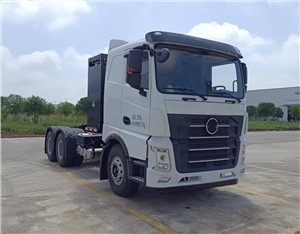Understanding CKD: What Does it Stand For and Its Implications

Chronic Kidney Disease (CKD) is a term that’s essential to understand, especially as kidney health becomes more prominent in discussions about overall wellness. This article will delve into what CKD stands for, its stages, causes, symptoms, diagnosis, and management strategies, as well as providing practical tips for maintaining kidney health.

What Does CKD Stand For?
CKD stands for Chronic Kidney Disease. It refers to a gradual loss of kidney function over time, which can lead to serious health complications if not managed properly. The kidneys are vital organs that filter waste products and excess fluids from the blood, and when they are damaged, various bodily functions are affected.
The Importance of Kidney Health
Understanding CKD is crucial not only for those diagnosed with it but for everyone, as maintaining kidney health is a key part of overall well-being. The kidneys play an essential role in maintaining the body’s balance, regulating electrolytes, and producing hormones that manage blood pressure and red blood cell production.
Stages of Chronic Kidney Disease
CKD is classified into five stages based on the severity of kidney damage and the level of kidney function. These stages are determined by measuring the Glomerular Filtration Rate (GFR).
Stage 1: Kidney Damage with Normal GFR
At this stage, there may be kidney damage evident through imaging tests or urine tests, but GFR remains normal (90 mL/min or above).
Stage 2: Mild Decrease in GFR
In stage 2, the GFR is 60-89 mL/min, indicating mild loss of kidney function, often without noticeable symptoms.
Stage 3: Moderate Decrease in GFR
Stage 3 is divided into two substages:
– Stage 3a: GFR 45-59 mL/min
– Stage 3b: GFR 30-44 mL/min
Symptoms may start to appear, and complications such as high blood pressure might arise.
Stage 4: Severe Decrease in GFR
At this stage, the GFR is between 15-29 mL/min. Patients typically require more intense monitoring and may need to prepare for dialysis or kidney transplantation.
Stage 5: Kidney Failure
Stage 5, also known as End-Stage Renal Disease (ESRD), occurs when GFR falls below 15 mL/min. Dialysis or a kidney transplant is necessary for survival at this stage.
Causes of Chronic Kidney Disease
Several factors contribute to the development of CKD. Understanding these causes can help in prevention and management.
Diabetes
Diabetes is one of the leading causes of CKD. High blood sugar levels can damage blood vessels in kidneys, impairing their function over time.
Hypertension (High Blood Pressure)
High blood pressure creates additional stress on the kidneys, leading to further damage and accelerating the progression of CKD.
Other Causes
- Glomerulonephritis (inflammation of kidney filters)
- Polycystic kidney disease
- Prolonged use of medications that can harm the kidneys (like NSAIDs)
- Frequent urinary tract infections (UTIs)
Symptoms of Chronic Kidney Disease
CKD often progresses silently with few symptoms until it reaches an advanced stage. Here are some common signs:
Early Symptoms
- Fatigue and weakness
- Frequent urination
- Swelling in hands and feet (edema)
Advanced Symptoms
- Loss of appetite
- Nausea and vomiting
- Itching
- Shortness of breath
- Confusion or difficulty concentrating
Diagnosis of Chronic Kidney Disease
Diagnosing CKD involves several steps, primarily focused on assessing kidney function and damage.
Blood Tests
A key test involves measuring serum creatinine levels to calculate GFR. A routine blood test can provide valuable insights into kidney health.

Urine Tests
Tests such as urinalysis and 24-hour urine collection help evaluate the presence of protein, blood, or other abnormalities.
Imaging Tests
Ultrasounds or CT scans may be performed to visually inspect the kidneys for any structural issues.
Managing Chronic Kidney Disease
Managing CKD focuses on slowing its progression and preventing complications.

Lifestyle Changes
- Healthy Eating: A balanced diet with reduced sodium, potassium, and phosphorus intake is essential. Incorporate fruits, vegetables, whole grains, and lean proteins.
- Hydration: Drink enough water to stay hydrated but avoid excessive fluid intake as recommended by your healthcare provider.
- Physical Activity: Regular exercise can help control blood pressure and blood sugar levels.
- Avoid Harmful Substances: Limiting alcohol and quitting smoking can greatly improve kidney health.
Medication Management
For individuals with diabetes or hypertension, careful management of medications is crucial to protect kidney function. Always consult with a healthcare provider regarding medication adjustments.
Regular Monitoring
Routine check-ups and tests are necessary to assess kidney function and catch any progression early.
Dialysis and Transplantation
In advanced stages, dialysis (a procedure to remove waste from the blood) or kidney transplant may be required. Discuss options thoroughly with a healthcare specialist.
Practical Tips for Maintaining Kidney Health
While CKD may not be entirely preventable, certain lifestyle choices can significantly impact kidney health.
- Eat Kidney-Friendly Foods: Focus on foods low in sodium, phosphorus, and potassium.
- Control Blood Sugar Levels: If diabetic, closely monitor and adjust your blood sugar levels as needed.
- Regular Exercise: Aim for at least 30 minutes of moderate activity most days.
- Avoid Over-the-Counter Painkillers: Limit the use of NSAIDs unless directed by a doctor.
Frequently Asked Questions
What is the primary treatment for CKD?
The primary treatment for CKD involves managing the underlying causes, primarily diabetes and hypertension. This may include lifestyle changes, medications, and regular monitoring.
Can CKD be reversed?
While early-stage CKD may be manageable or slowed, it cannot be completely reversed. The focus is typically on preserving remaining kidney function and preventing further decline.
What happens in the final stage of CKD?
In the final stage (stage 5), the kidneys can no longer filter waste effectively, necessitating dialysis or a kidney transplant for survival.
How can I prevent CKD?
Preventive measures include managing existing health conditions, maintaining a healthy lifestyle, staying hydrated, and having regular health check-ups to monitor kidney function.
Is CKD common?
CKD is a prevalent health issue, particularly among older adults and individuals with diabetes or hypertension. Increased awareness and screening can aid early detection.
What role do diet and lifestyle play in CKD?
Diet and lifestyle choices greatly influence kidney health. A balanced diet, regular exercise, and avoiding harmful substances can help manage CKD and improve overall health.
Conclusion
Understanding Chronic Kidney Disease (CKD) is essential for maintaining kidney health and overall well-being. Recognizing the stages, symptoms, causes, and management options can empower individuals to take proactive steps in preserving their kidney health. Regular check-ups and informed lifestyle choices play crucial roles in battling this condition.
